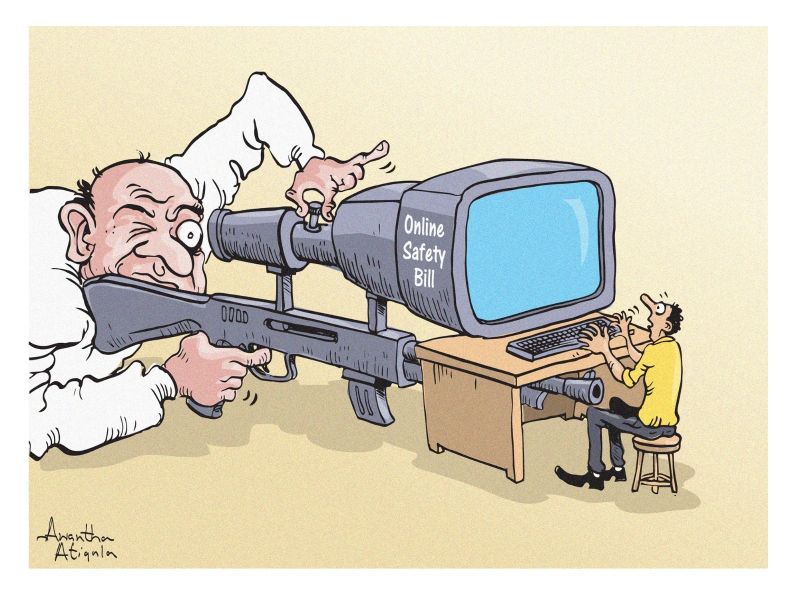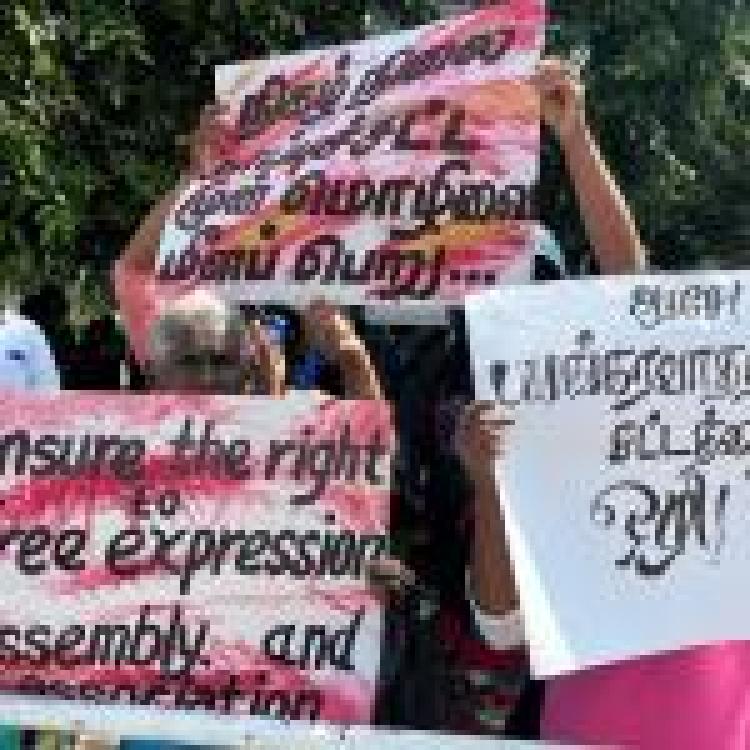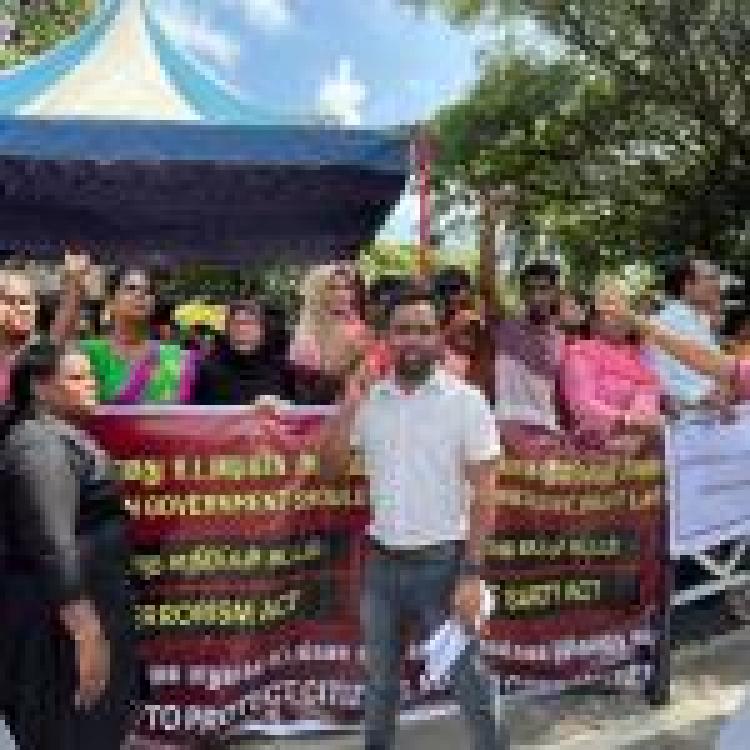

(Cartoon by Avantha Artigala)
Human Rights Watch has warned that Sri Lanka's controversial Online Safety Bill could impede the freedom of expression on the internet at a time when the island prepares for a parliamentary and presidential polls later this year.
“The proposed law, the Online Safety Bill, purportedly provides protections against online harassment, abuse, and fraud. Instead, it is mostly concerned with creating a new “Online Safety Commission,” appointed by the president, that can decide what online speech is “false” or “harmful,” remove content, restrict and prohibit internet access, and prosecute individuals and organizations,” HRW Deputy Asia Director Meenakshi Ganguly said in a statement, adding that the commission-appointed “experts” would be empowered to enter and search suspects’ premises.
Offences under this new bill could carry hefty fines and prison sentences of up to five years. The United Nations human rights office said last year that the law “could potentially criminalize nearly all forms of legitimate expression, creating an environment that has a chilling effect on freedom of expression."
“Sri Lanka is still reeling from an economic crisis partly caused by misgovernment and failures of accountability," said Ganguly. "In 2022, months-long protests demanding reform toppled the prime minister and president. Since coming to power that year, President Wickremesinghe has moved to stifle dissent... Sri Lanka’s repressive laws have facilitated widespread human rights violations for decades and contributed to economic and political crises. Passing the Online Safety Bill would be a disastrous setback.”
The Asia Internet Coalition (AIC), an industry body including tech giants such as Google, Apple, and Meta in a statement called the bill a “draconian system to stifle dissent” and warned it “could undermine the potential growth of Sri Lanka’s digital economy.”
Jeff Paine, the Managing Director of AIC has called the Bill “unworkable,” adding, “the bill would undermine potential growth and foreign direct investment into Sri Lanka’s digital economy. We firmly believe that for the Bill to align with global best practices, extensive revisions are imperative”.
Read more from HRW here.



